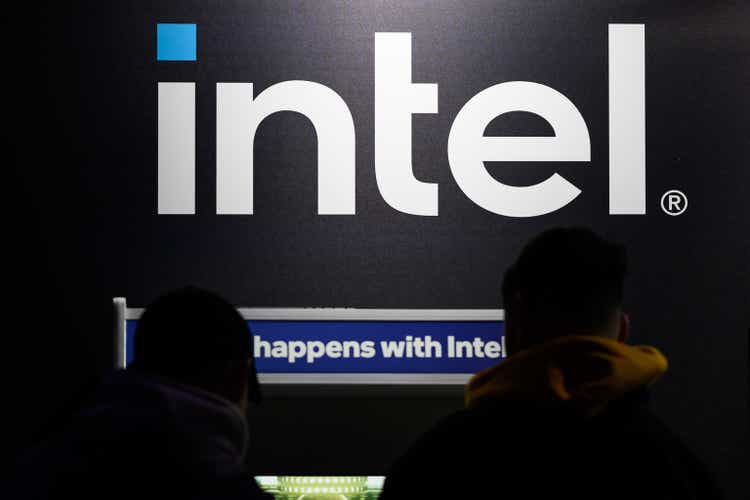
Leon Neal
Intel (NASDAQ:INTC) manufacturing plant in Chanler, Az. “is following plan” and is expected to become fully operational this year, UBS said, amid rumors that the semiconductor giant could receive up to $10 billion in financing from CHIPs. Act.
“The new Fabs (both adjacent to Fab 42) show substantial progress: the vertical structures cover the entire planned final surface area and the movement and storage of construction material in the southern part of the lot continues apace,” wrote the UBS analyst Timothy Arcuri in a note. Arcuri has a Neutral rating and a $38 price target on Intel.
Intel shares increased by 2.6% in premarket trading Tuesday.
The plant is likely to begin accommodating equipment in the second half of this year, which could result in a “substantial increase” in Intel’s spending on wafer manufacturing equipment (with even more to come in 2025), though it remains to be seen how quickly the new factories can expand as Intel brings production back in-house and away from Taiwan Semiconductor (TSM), Arcuri said.
Arizona is seen as a “key pillar” for Intel’s manufacturing strategy after it delayed its $20 billion plant in Ohio earlier this year, Arcuri said.
Mixed success for Intel foundry hopes
Other Intel factories around the world have had mixed starts, indicative of the hiccups Intel is experiencing with its IDM 2.0 strategy. The Pat Gelsinger-led company started extreme ultraviolet lithography in Ireland last year, but construction of its plant in Magdeburg, Germany, was delayed to 2027 from the first half of 2023 amid revised talks for greater support of the government.
Intel’s recent deal with United Microelectronics (UMC) to produce 12-nanometer nodes in markets such as mobile and communications is, however, a sign that its foundry business is gaining momentum, Arcuri said.
In the most recent quarter, Intel said its foundry segment saw revenue rise 63% year over year to $291 million, well below the $19.62 billion generated by Taiwan Semiconductor in the same period.
CHIPs Act Funding
Intel is in talks with the Biden administration about getting more than $10 billion in subsidies for semiconductor construction.
The rewards package is likely to include both loans and direct grants, which stem from the Chips and Science Act of 2022. The legislation allocated $39 billion in direct grants, as well as loans and loan guarantees worth $75 billion to help semiconductor companies produce chips in the United States.
In August, a year after the US CHIPs Act was signed into law, the White House touted its findings, including that more than 460 companies had submitted expressions of interest in receiving funding.
GlobalFoundries (GFS), which competes with both Intel and Taiwan Semiconductor, received $1.5 billion from the CHIPs Act this week to boost its domestic manufacturing capabilities.